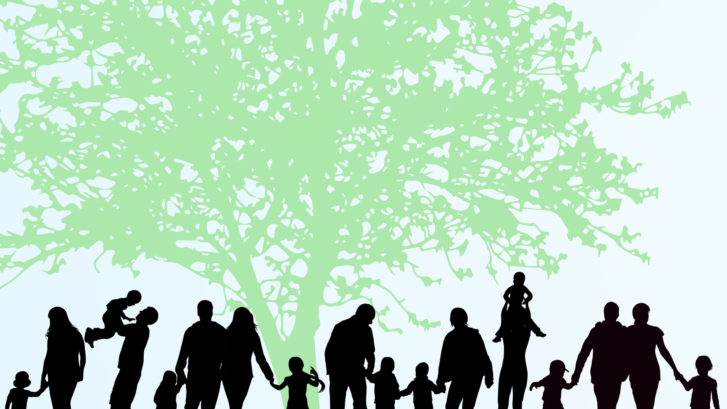What does “being Jewish” mean… not just now, but for the future?
The Melior Group works with Jewish organizations, including Federations and Day Schools, to help them better meet the current and emerging needs of the communities in which they operate. Our approach includes developing community surveys, which usually contain attitudinal questions about Jewish identity. Agreement with one such statement, “It is important that future generations of my family consider themselves Jewish,” is always high; generally, over 95% “agree,” and over two-thirds “agree strongly.”
Until recently, I have interpreted the nearly unanimous response this way: in saying that they want their progeny to be Jewish, community members demonstrate their commitment to Jewish sustainability, and therefore – at least in some way – to the institutions and organizations which are essential to Jewish communal life. A very smart colleague, however, has challenged me to look at this a little bit differently.
If I were to travel back in time to talk to my great-grandparents in Eastern Europe, I have no doubt that they, too, would strongly agree that “It is important that future generations of my family consider themselves Jewish.” But, if they were to meet me today, would they feel that their hopes had been met? In some ways, I have followed in their footsteps: for one thing, I would answer that attitudinal question the same way they would have. I am a member of a synagogue, I’ve been to Israel and my family lights candles on Shabbat. And yet…my daughters play soccer on Saturday, attend secular schools and love our annual lobster dinner.
Would my fore-fathers and -mothers claim victory, or even connect our Jewish practice to theirs? I am not very confident that they would.
I’ve come to realize that while agreement with the statement “It is important that future generations of my family consider themselves Jewish” is high across the board, the expectations contained in that statement vary widely. This has implications for Jewish communal institutions, which both serve, and are sustained by, their communities.
And this is why Melior’s work is so valuable; we can help individual communities learn about what it means to “be Jewish” there. Our research asks questions and seeks answers that can help shape what “being Jewish” means in relation to Jewish communal organizations, such as: What are the common denominators, the essential kernels of being Jewish? How can Jewish communal institutions support and encourage participation among everyone who identifies as Jewish, in the spirit of inclusion and no judgement? What can be done to nurture Jewish identity, while acknowledging and accepting that moving the needle toward greater involvement may or may not happen?
Through an exploration of how Jews within a given community define “being Jewish”, and their hopes for what future generations will believe and carry forward, Jewish community leaders can better serve their communities now and in the future, and leverage the widespread hope that Judaism – in its evolving shapes and forms – will live on.
Interested in discussing a Jewish community studies project? Contact Elizabeth Cohen at [email protected]/215-545-0054 ext. 103 or Sue Levine at [email protected] or 215-545-0054 x107.


